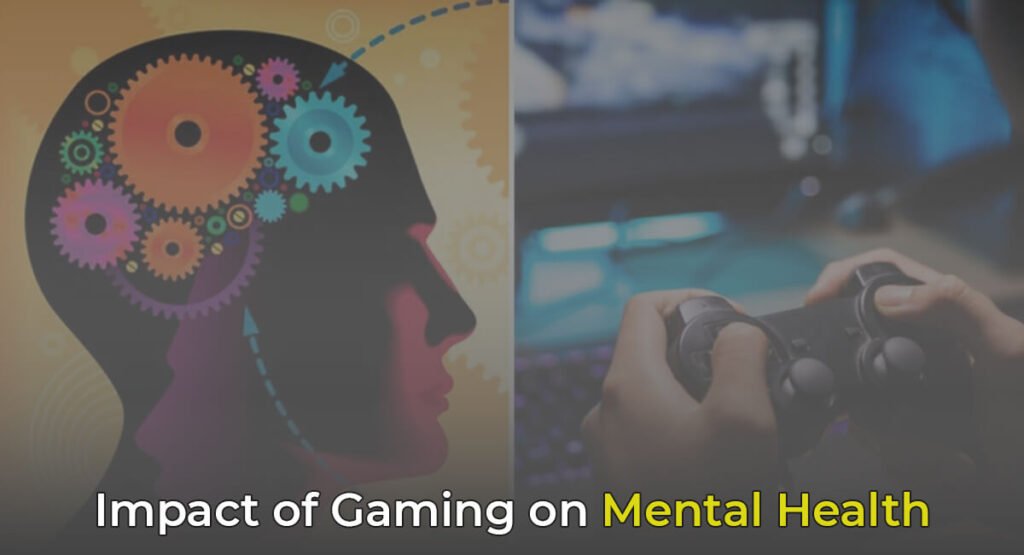Video games have been a popular pastime for decades, but as technology advances and gaming becomes more immersive, the question of their impact on mental health and well-being has come to the forefront. Studies have shown that video games can have both positive and negative effects on mental health, depending on the type of game, the frequency of play, and the player’s individual circumstances. Game Zone Central, a website dedicated to reviewing gaming products, explores the latest research on the topic and offers insights into how video games can be enjoyed in a way that promotes mental well-being. From the potential for addiction to the benefits of social connection, this article will give you a comprehensive understanding of the impact of video games on mental health and well-being.
The impact of video games on mental health and well-being
The Positive Effects of Video Games
Recent research has shown that video games can also have positive effects on mental well-being. Here are some examples:
- Cognitive benefits: Video games can improve attention, memory, and problem-solving skills. Playing action games, in particular, has been shown to improve reaction time and spatial attention.
- Emotional benefits: Playing video games can help reduce stress and anxiety, and increase feelings of happiness and satisfaction. This can be due to the sense of accomplishment and social connection that games can provide.
- Therapeutic benefits: Video games have been used as a tool in therapy for conditions such as PTSD, depression, and chronic pain. Games can provide a safe and controlled environment for patients to work through their issues.
It’s important to note that these positive effects are more likely to occur when video games are played in moderation and with a balance of other activities. It’s also important to consider the content of the game, as some games may have more negative effects on mental health than others.
The Negative Effects of Video Games
Here are some examples:
- Addiction: Prolonged and excessive gaming can lead to addiction, characterized by a loss of control over gaming behavior and negative consequences in other areas of life.
- Aggression: Some studies have suggested that violent video games can lead to an increase in aggressive behavior and thoughts. However, it’s important to note that the research on this topic is mixed and more studies are needed to fully understand the relationship.
- Social isolation: Excessive gaming can lead to a decrease in social interactions, which can have negative effects on mental health and well-being.
- Poor academic or occupational performance: Excessive gaming can lead to neglect of responsibilities and poor performance in school or at work.
- Sleep disorders: Prolonged gaming sessions can disrupt the sleep cycle and lead to insomnia, fatigue, and other sleep-related problems.
Video Game Addiction and Mental Health
The addiction can manifest itself in a number of ways, such as:
- Preoccupation with games: An individual with video game addiction may think about games constantly, even when they’re not playing.
- Loss of control: They may find it hard to stop playing, even when they want to, and may continue to play despite negative consequences.
- Tolerance: They may need to play for longer periods of time to achieve the same level of enjoyment.
- Withdrawal symptoms: They may experience negative emotions such as anxiety or irritability when unable to play.
Video Games and the Impact on Emotional Regulation
Emotional regulation refers to the ability to manage and control one’s emotions in a healthy and adaptive way. Video games can have both positive and negative effects on emotional regulation. On the positive side, video games can provide an outlet for stress and negative emotions. Games can provide a sense of accomplishment, which can boost self-esteem and self-worth. They also can provide social connections, which can help reduce feelings of loneliness and isolation. On the negative side, excessive gaming can lead to problems with emotional regulation.
Prolonged and excessive gaming can lead to addiction, which can disrupt normal emotional functioning. It can also lead to social isolation, which can negatively impact emotional regulation. Furthermore, violent video games can lead to an increase in aggressive behavior and thoughts, which can make it harder to regulate emotions. It is important to note that the relationship between video games and emotional regulation is complex, and more research is needed to fully understand it. However, it is clear that moderation is key, and balance with other activities is important. Video games can be enjoyed in a healthy way when played in moderation and with an eye towards emotional regulation.
Final Thoughts
The impact of video games on mental health and well-being is a complex and nuanced topic. It’s important to keep in mind that these effects are more likely to occur when video games are played in excess and without balance of other activities. It’s also important to consider the content of the game, as some games may have more negative effects on mental health than others. Therefore, it is important to enjoy video games in moderation and to be mindful of the potential impact on mental health and well-being.

